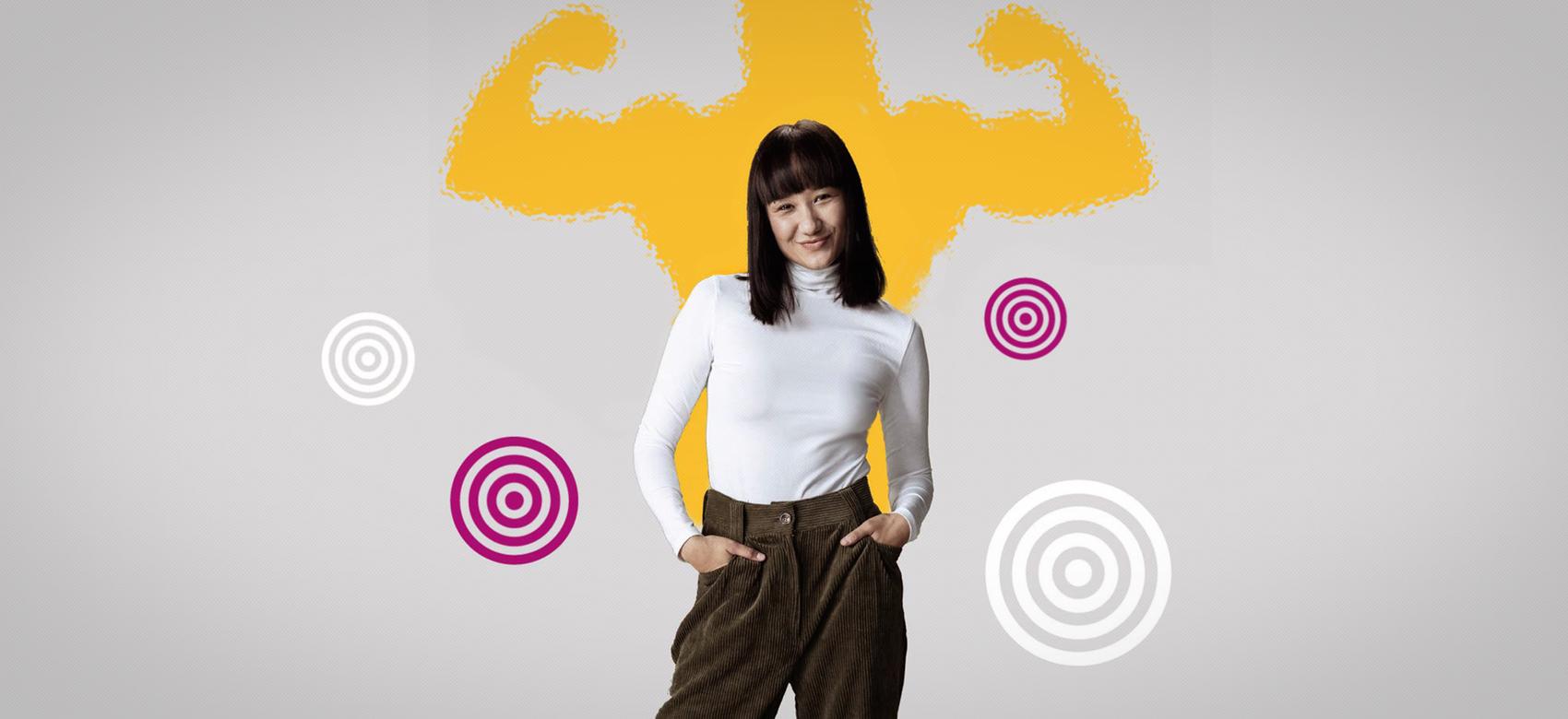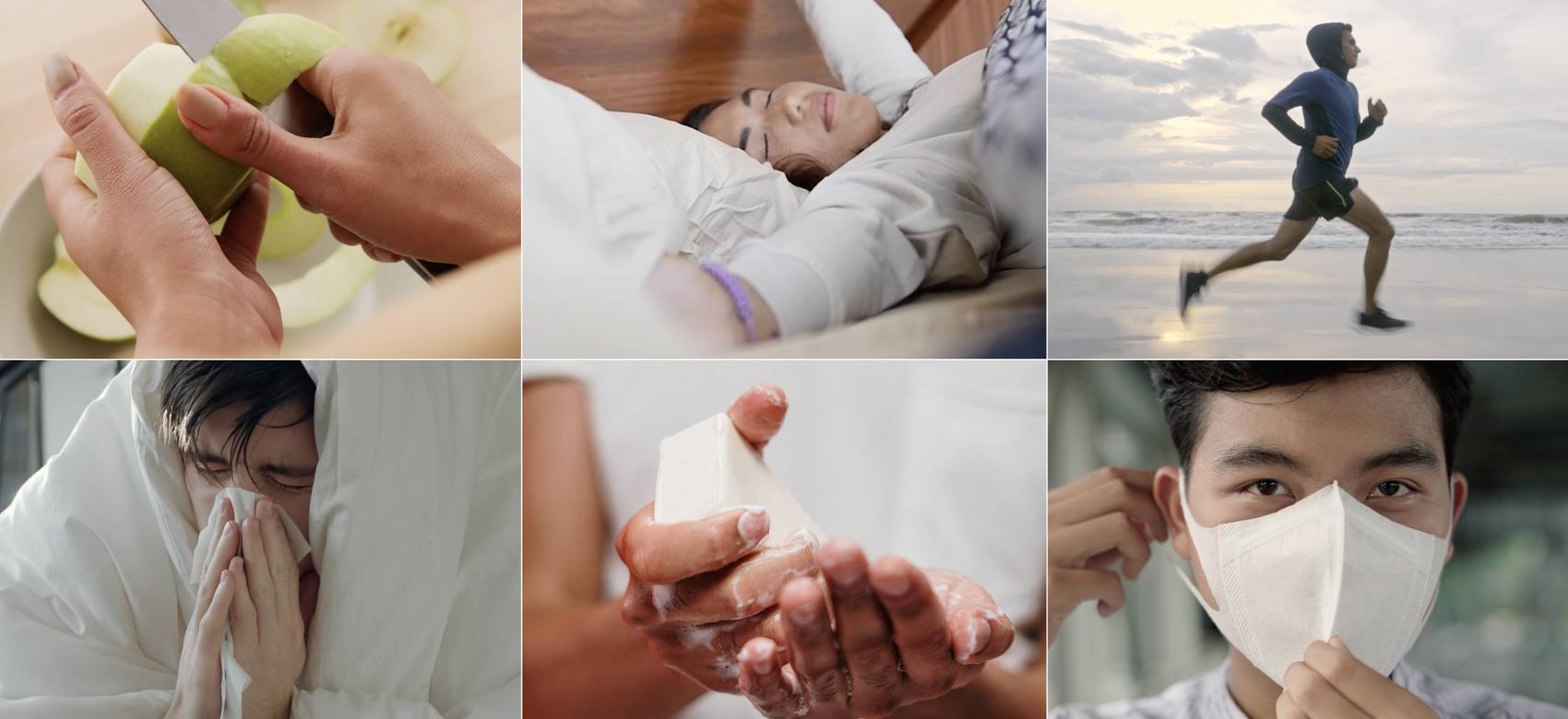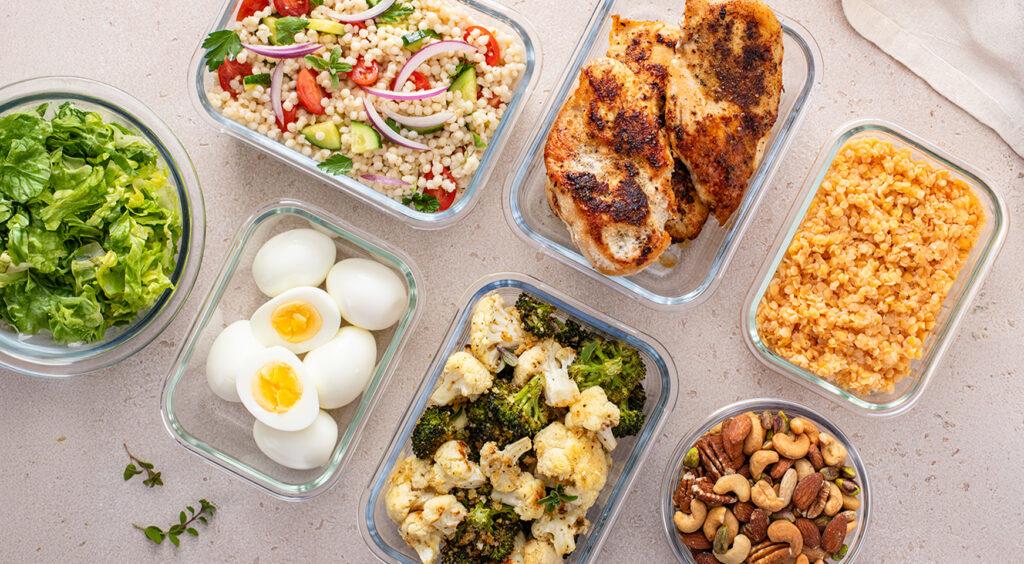How to make yourself a hard target for communicable diseases
by Carolyn Ali

Practices that help slow the spread of COVID-19 can also reduce your risk of the flu, colds and other illnesses
With COVID-19 vaccination passports in hand, many of us are stepping up our everyday social interactions. While this winter should be less isolating than the last, increased social interaction naturally brings with it increased risk of other communicable diseases.
“Last year, when people started staying home when they were sick and we had physical distancing, we saw almost no influenza all winter long,” recalls Dr. David Patrick, who is a professor in the UBC School of Population and Public Health. We also saw a reduced circulation of cough and cold viruses and respiratory syncytial virus (RSV), which can cause upper respiratory and lung problems in children. “This fall, there’s a concern that we could have a very active season,” he says.
But as with COVID-19, Dr. Patrick says, both individual and collective actions can make a difference in slowing the spread of infections.
“When something is communicable from person to person, then my having the infection is a risk factor for you,” he explains. “That also means we have the potential for exponential growth. So it’s important that we think about this socially—not just about our individual protection but about how we protect others and also how everyone makes our community a hard target.”
“If you make yourself a robust organism, you’re harder to invade.”
Dr. David Patrick, professor, UBC School of population and public health
Becoming a hard target
“For most infectious diseases, the risk of getting very ill is related to how healthy you are,” explains Dr. Patrick. “If you make yourself a robust organism, you’re harder to invade.”
Dr. Patrick, who is also the Director of Research and the medical epidemiology lead for antimicrobial resistance at the BC Centre for Disease Control, explains that communicable diseases can be transmitted through the air, food and water, sex and used needles. “The ones we talk about the most are passed through the respiratory route. That includes COVID, influenza and cough and cold viruses.”
Here’s what we can do, as both individuals and as a society, to slow the spread.

Eat well, sleep well and exercise
This basic advice still stands. “It’s true that if you’re run down and unhealthy, it changes the odds of getting infected and getting ill,” Dr. Patrick says. “You have some control over that, in terms of giving yourself good nutrition, sufficient sleep and enough exercise.”
Stay home when you’re sick
“People are so used to going to work a little bit sick,” Dr. Patrick points out. “In the past, we erred on the side of going to work if we possibly could. That’s certainly a way that influenza has gotten around; it’s certainly a way that COVID got around. We have to change that norm as a society.”
If you feel ill, err on the side of staying home. “For most respiratory infections, once you feel well for 24 hours, you’re usually less contagious,” Dr. Patrick notes. But when you do go back to the office, don’t mingle too closely with your colleagues. “The most civilized thing we can do is avoid transmitting to others.”

Get immunized
Beyond COVID-19 vaccinations, Dr. Patrick advises talking to your physician about other recommended vaccinations and ensuring your shots are up to date. Flu season runs from late October to the end of March, and flu shots are now available. (Here’s more about what you need to know about flu season this year.)
Depending on your age and circumstances, immunization against other communicable diseases may be recommended, such as the HPV vaccine for young adults, shingles for adults aged 50 and up, or a vaccine to prevent the most common type of bacterial pneumonia. There isn’t a vaccine for RSV yet, so children should follow all the basic approaches mentioned here to slow any spread.
Continue masking and handwashing
The social and hygiene practices that help slow the spread of COVID-19 help reduce the spread of other communicable illnesses as well. Regular handwashing, for example, helps to reduce the transmission of not just respiratory viruses but of food- and water-borne diseases. Keep following public-health restrictions.
Balance your risk
If you’re fully vaccinated against COVID-19, are following provincial health guidelines and are still feeling anxious about infection transmission through social interactions, Dr. Patrick advises starting with smaller gatherings before attending larger ones such as public performances, where vaccine cards add a layer of assurance.
“All of us realize that when we were at our most insular, we were missing something fundamental to living a full human life,” Dr. Patrick acknowledges. “We need that social contact, so it’s important to do some risk balancing.”
Carolyn Ali is a writer for UBC Brand and Marketing. This article was published on October 26, 2021. Feel free to republish the text of this article, but please follow our guidelines for attribution and seek any necessary permissions before doing so. Please note that images are not included in this blanket licence.


